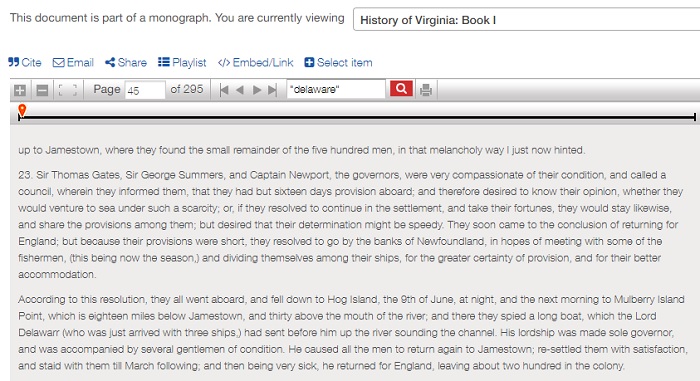Do you keep a diary? In times of crisis, firsthand, contemporaneous accounts are among the most valuable to the historians of later decades. We call these ‘primary’ sources – those created by the people who lived the events that are described. Letters and diaries have long been fertile sources for understanding history, and the blogs and emails of today will likely inform the historians of tomorrow. While our times can seem unprecedented, calamities of various sorts have always shaped the eras they happened in. The Influenza pandemic of 1918, commonly called the Spanish Flu, is often held up as a comparison to today’s struggle with the COVID-19 coronavirus. Studying how people survived previous crises and catastrophes; and the lived experience of them, can impart some reassurance that our crisis, too, shall pass.
The library offers numerous databases focused on primary source material – such as letters and diaries – that cover many perspectives. These are not limited to crises – they richly inform big history-making events, personal triumphs and tragedies, and routine everyday life. But they also offer a uniquely powerful window into the calamities of the past.
Early Encounters in North America offers letters, diaries, and memoirs from the earliest European presence on the continent through the nineteenth century. One work included in the database is The History and Present State of Virginia by Robert Beverly, a historian born in the colony of Jamestown, where the ‘Starving Time’ of 1609 nearly wiped out the settlement, leaving only sixty of five hundred settlers alive. Although in despair they chose to abandon the ravaged colony, they encountered other settlers who turned them back and restarted Jamestown.

British and Irish Women’s Letters and Diaries covers the personal writings of more than 500 women from England, Ireland, Scotland, and Wales, from about 1500 to 1950. A seminal period in Ireland’s history was the Potato Famine of the 1840s, and in this database we can see it through the eyes of Maria Edgeworth, an Irish children’s book author, in The Life and Letters of Maria Edgeworth. The ‘Hard Times’ cost Ireland a fifth of its population, to starvation or disease or emigration. Edgeworth was active in raising money for the famine relief effort, writing one of her novels, Orlandino, for that charity.

North American Immigrant Letters & Diaries covers 1800 to 1950 and includes oral histories recorded on Ellis Island in addition to the more traditional sources. Numerous crises similar to ours are documented by the people of the day, including William Cobbett, a pamphleteer from Britain, whose On Such Other Matters, a Knowledge Relating to Which, Must Be Useful to Every One Going from England to the United States includes recollections about the 1793 Yellow Fever epidemic that raged in Philadelphia; and the seminal autobiography Quiet Odyssey: A Pioneer Korean Woman in America by Mary Paik Lee, an immigrant who lived through the aforementioned 1918 Spanish Flu pandemic. Her memoirs are the best primary source for 20th century American history by a Korean American woman.
The Sixties: Primary Documents and Personal Narratives focuses on that influential decade in American history and its aftermath, including memoirs, oral histories, diaries, and more. It includes entries relating to the 1968 Hong Kong Flu, including a missive of curmudgeonly misanthrope and free-thinker James Hervey Johnson, editor of Truth Seeker magazine, who provides an important caution for historians. One limitation of primary sources (rich as they are) is that participants did not have all the information, or perspective of the whole event, as we do in retrospect – an illustration of what might be compared to the ‘fog of war’. Here, Johnson expresses his skepticism of the very existence of the flu strain.

These aren’t all – IU East offers many more primary source databases, such as North American Women’s Letters and Diaries and American Civil War: Letters and Diaries. Exploring them can offer an irreplaceable window on the past – one you too might provide to the future if you record your thoughts and experiences of your life today.
Need help finding the resources that you need? You can Ask Us! iueref@iue.edu

